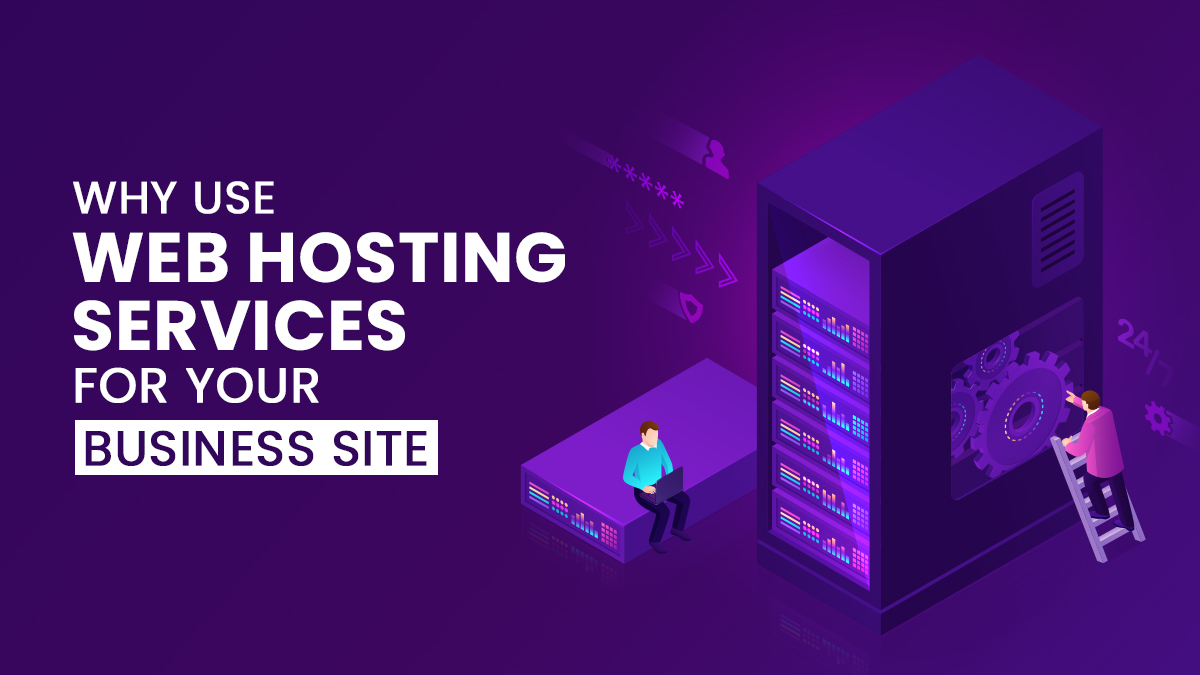In today’s digital world, a robust online presence is crucial for any business aiming to thrive. Whether you’re running a startup or a well-established enterprise, your choice of web hosting can significantly impact your business operations, customer experience, and overall success. This comprehensive guide will delve into the essentials of business web hosting, helping you make an informed decision about the best hosting solution for your needs.
1. Understanding Business Web Hosting
Business web hosting is a service that allows companies to store their websites on servers connected to the internet. This service is critical for making your website accessible to users worldwide. However, not all web hosting solutions are created equal. Business web hosting is designed to cater specifically to the needs of businesses, offering features and support tailored to corporate requirements.
1.1. Types of Business Web Hosting
- Shared Hosting: This is the most economical option where multiple websites share a single server’s resources. It’s ideal for small businesses with low traffic but can be limiting in terms of performance and customization.
- VPS Hosting (Virtual Private Server): VPS hosting offers a middle ground between shared and dedicated hosting. You share a server with other users, but you have your own dedicated portion of resources. This is suitable for growing businesses that need more control and flexibility.
- Dedicated Hosting: With dedicated hosting, you rent an entire server for your exclusive use. This option provides maximum performance and control but comes at a higher cost. It’s ideal for large businesses with high traffic and complex needs.
- Cloud Hosting: Cloud hosting utilizes multiple servers to host your website, offering scalability and reliability. It’s suitable for businesses that expect fluctuating traffic levels or need high uptime.
- Managed Hosting: This type of hosting involves the provider taking care of server management, including updates and security. It’s beneficial for businesses that prefer to focus on their core activities rather than technical maintenance.

1.2. Key Features to Look For in Business Web Hosting
When evaluating web hosting options, consider the following features:
- Performance and Speed: Fast load times are crucial for user experience and SEO. Look for hosting services that offer high performance and low latency.
- Uptime Guarantee: A reliable hosting provider should offer a high uptime guarantee, ideally 99.9% or better, to ensure your website is always accessible.
- Scalability: Your hosting solution should be able to grow with your business. Check if the provider offers easy scalability options.
- Security: Ensure that the hosting service provides robust security measures, such as SSL certificates, firewalls, and regular backups.
- Customer Support: 24/7 customer support is essential for addressing any issues that may arise promptly.
- Backup and Recovery: Regular backups and an efficient recovery process are crucial for protecting your data from loss or corruption.
- Control Panel: A user-friendly control panel, like cPanel or Plesk, can simplify managing your hosting environment.
2. Evaluating Your Business Needs
Before selecting a web hosting service, assess your business’s specific needs:
2.1. Assess Traffic Levels
Estimate the amount of traffic your website will generate. If you anticipate high or fluctuating traffic, consider scalable solutions like cloud hosting or VPS.
2.2. Consider Your Website Type
The type of website you run (e.g., e-commerce, blog, corporate site) will influence your hosting needs. E-commerce sites, for example, require enhanced security and performance features. To know more about business hosting you can click here.
2.3. Budget Constraints
Determine your budget for web hosting. While shared hosting is cheaper, it may not meet the needs of growing businesses. Invest in a hosting solution that provides the best value for your requirements.
2.4. Technical Expertise
Consider your team’s technical expertise. Managed hosting might be a better option if you lack in-house IT skills.

3. Top Business Web Hosting Providers
Here’s a roundup of some of the leading business web hosting providers, each offering unique features to cater to various business needs:
3.1. Bluehost
- Overview: Bluehost is known for its excellent customer support and performance.
- Features: Free domain, SSL certificate, 24/7 support, and a range of hosting options.
- Best For: Small to medium-sized businesses.
3.2. SiteGround
- Overview: SiteGround offers superior speed and security features.
- Features: Free daily backups, advanced security, and excellent customer support.
- Best For: Businesses prioritizing security and performance.
3.3. HostGator
- Overview: HostGator provides a range of hosting options with flexible scalability.
- Features: Unmetered bandwidth, free website builder, and 24/7 support.
- Best For: Businesses needing scalable hosting solutions.
3.4. InMotion Hosting
- Overview: InMotion Hosting is recognized for its high-performance solutions.
- Features: Free website migration, SSD storage, and robust customer support.
- Best For: Businesses requiring high-performance hosting.
3.5. A2 Hosting
- Overview: A2 Hosting is known for its speed and reliability.
- Features: Turbo servers for faster load times, free site migration, and 24/7 support.
- Best For: Businesses focusing on speed and performance.
4. Setting Up Your Business Website

Once you’ve chosen a web hosting provider, follow these steps to set up your business website:
4.1. Domain Registration
Register a domain name that reflects your business name and is easy to remember. Many hosting providers offer domain registration services as part of their hosting packages.
4.2. Installing a CMS
A Content Management System (CMS) like WordPress, Joomla, or Drupal can simplify website management. Most hosting providers offer one-click installations for popular CMSs.
4.3. Website Design and Development
Design your website with your target audience in mind. Ensure it’s visually appealing, user-friendly, and optimized for mobile devices.
4.4. Implementing Security Measures
Install security plugins and enable SSL certificates to protect your website from threats and provide a secure browsing experience for your users.
4.5. Regular Maintenance
Regularly update your website’s content, plugins, and software to keep it secure and functional. Schedule regular backups to prevent data loss.
5. Common Challenges and Solutions
Even with the best hosting solution, you may encounter challenges. Here are some common issues and how to address them:
5.1. Downtime
Downtime can negatively impact your business. Choose a hosting provider with a high uptime guarantee and monitor your website’s performance regularly.
5.2. Security Threats
Cybersecurity threats are a concern for all businesses. Implement robust security measures, such as firewalls, SSL certificates, and regular updates.
5.3. Performance Issues
If your website experiences slow load times, consider upgrading your hosting plan or optimizing your website’s performance with caching and content delivery networks (CDNs).
5.4. Customer Support
Ensure that your hosting provider offers responsive and knowledgeable customer support. Test their support channels before committing to a long-term plan.
6. Future Trends in Business Web Hosting

Stay ahead of the curve by being aware of emerging trends in web hosting:
6.1. AI and Automation
AI-driven tools and automation are making web hosting more efficient. From automated backups to intelligent security systems, these technologies enhance the hosting experience.
6.2. Green Hosting
Sustainability is becoming increasingly important. Look for hosting providers that use renewable energy and implement eco-friendly practices.
6.3. Edge Computing
Edge computing is improving website performance by processing data closer to the user. This technology is likely to become more prevalent in the future.
6.4. Enhanced Security Features
As cyber threats evolve, so do security measures. Expect hosting providers to offer more advanced security solutions, including AI-driven threat detection.
Conclusion
Choosing the right business web hosting solution is a critical decision that can impact your website’s performance, security, and overall success. By understanding the various hosting options, evaluating your business needs, and considering leading providers, you can make an informed choice that aligns with your goals.
Remember, your web hosting choice is not a one-time decision but an ongoing partnership. Regularly review your hosting needs and stay updated on industry trends to ensure your hosting solution continues to meet your business requirements effectively.

